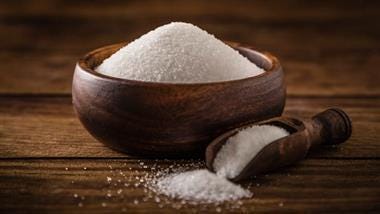Hot Off The Press #15
Toxic PFAS Chemicals In Dental Floss, Covid Jab Death Update, Pre-Cut Fruit Dangers, Eggs Tied To Cognitive Health, Erythritol Associated With Blood Clots
Hello StrongHealth Readers
Just when you thought the week couldn't get any busier, along comes another flood of health news. But that's why this newsletter exists: to help you navigate the sea of updates and make smart decisions about your well-being. So grab your favorite beverage, sit back, and let's dive in!
In This Issue:
Toxic PFAS “Forever Chemicals” in Dental Floss
3% of COVID-19 Jab Recipients Die
Pre-Cut Fruit Is Unhealthy
Eggs Could Help Slow Cognitive Decline
Erythritol Linked to Higher Blood Clot Risks
1. Toxic PFAS “Forever Chemicals” in Dental Floss
Does your favorite dental floss contain indicators of PFAS “forever chemicals?” Mamavation tested 39 different toothfloss products at an EPA-certified lab to find out. Some results were eye-opening, to say the least, so you’ll want to read the recommendations.
Here are some results:
33% of dental floss products had indications of PFAS “forever chemicals.
Levels of organic fluorine, a marker for PFAS, were found between 11 parts per million (ppm) to 248,900 parts per million (ppm).
Tooth floss products have the highest levels of organic fluorine ever seen in any consumer study.
4 tooth floss products had over 70,000 ppm organic fluorine.
Read more here: Mammavation
2. 3% of COVID-19 Jab Recipients Die
A study published last month in the international, peer-reviewed journal Informatics in Medicine Unlocked has brought to light alarming findings regarding the safety of COVID-19 shots. Research shows that 2.9% of individuals who received one of the major COVID jabs died following their vaccination.
Shockingly, the vaccine from the unknown manufacturer exhibited the highest mortality rate, with 21% of recipients dying after vaccination. And one of the most alarming aspects of the study is the discovery that “97.4% of the total number of deaths” occurred in individuals younger than 60 years.
Read more here: JonFleetwood.substack.com
3. Pre-Cut Fruit Is Unhealthy
Precut fruit offers convenience but increases the risk of foodborne illness due to processing contamination and loss of protective skin. A 2023 salmonella outbreak linked to precut cantaloupe affected 407 people across 44 states.
It’s also more expensive, often treated with chemical preservatives to maintain appearance, and packaged in plastic, potentially exposing consumers to harmful substances like bisphenol A.
As an alternative, buy whole, fresh fruit, preferably organic. It retains more nutrients and reduces exposure to pesticides.
Read more here: HuffPost
4. Eggs Could Help Slow Cognitive Decline
A recent study suggests that eating eggs may help keep the brain sharp in older adults, especially women, who experienced less decline in verbal fluency. This is an important finding as cognitive decline becomes more common with age.
Eggs are particularly rich in choline, a nutrient crucial for brain function, memory, and overall cognitive health. However, it's important to choose eggs from organic, pastured sources to avoid high levels of linoleic acid (LA), a type of fat that can negatively impact mitochondrial function. By selecting high-quality eggs, you can maximize their cognitive benefits.
Read more here:
5. Erythritol Linked to Higher Blood Clot Risks
A recent study has raised alarms about the safety of erythritol, a widely used artificial sweetener found in many low-calorie products. It found that the product significantly increased the risk of blood clots, which could lead to heart attacks or strokes. These findings are especially concerning because earlier research has also connected erythritol to higher risks of heart problems and even death. This underscores the need for avoidance, especially since erythritol is becoming more popular and is commonly used in products advertised as healthy.
Read more here: Mint, August 11, 2024
Your presence here is greatly valued. If you've found the content interesting and useful, please consider supporting it through a very cost-effective paid subscription. While all our resources are freely available, your subscription plays a vital role. It helps cover some operational costs and supports the continuation of this independent, unbiased research and journalism work. Please make full use of our free library.
If shy about commitments, feel free to leave a one-time tip!










